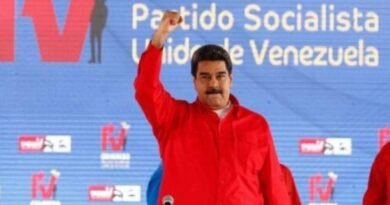Maduro brings electoral documents to TSJ
[ad_1]
Maduro brings electoral documents to TSJ
Maduro insisted all his hearings with the judges should be made public knowledge
Venezuelan President Nicolás Maduro Friday delivered to the Supreme Court (TSJ) the electoral records in possession of the parties that supported his candidacy in the July 28 elections, Agencia Brasil reported. The TSJ is conducting an investigation at Maduro’s request after the opposition cried fraud and insisted Edmundo González Urrutia had been the winner.
The United Socialist Party of Venezuela [PSUV] and the Great Patriotic Pole of Simon Bolivar [coalition of parties that support Maduro’s government] have the experience, the machinery, the organization, the professional capacity, and the expertise to carry out electoral processes and have all the documents that were delivered today to the Electoral Chamber [of the TSJ], Maduro told reporters in Caracas after conferring with the judges.
Since Aug. 4, representatives of the 38 parties that participated in the presidential elections, as well as nine of the ten competing candidates appeared before the TSJ for hearings with the judges of the so-called Electoral Chamber of the Court. The only one who did not was González Urrutia, who claimed that the TSJ investigation usurped the competence of the National Electoral Council (CNE).
In addition, the leaders of the parties grouped behind González Urrutia’s Unitarian Democratic Platform (PUD) did appear before the TSJ but failed to bring the minutes in their possession citing that they had already been posted on the Internet.
Maduro questioned that move and insisted he had requested the prosecution and the judges that all my hearing be released to be public knowledge.
In Venezuela, at the closing of the voting, the ballot box prints the election ballot and a copy is distributed to all party officials present on the premises. The CNE has yet to release the minutes for each polling table.
PSUV leader Diosdado Cabello argued that in Venezuela the election results are not published. Over here the results are given. If I have a problem with a result, I present my results to demonstrate the proof, he commented.
On previous occasions, the CNE has always published the data by polling table. The CNE’s website remains unavailable after it announced Maduro’s victory but did not present the detailed data per voting table, nor did it carry out any audits, thus triggering the fraud allegations.
González Urrutia’s camp published on the Internet what they claim were the electoral rolls in possession of the parties supporting him, and which would prove his victory. However, the government maintains that these minutes were forged and the Public Prosecutor’s Office opened a criminal investigation against those responsible for the page hosting these documents.
In this scenario, the TSJ opened an investigation to speed up the process. As a result, the alleged original minutes were handed over by the CNE to the Judiciary without being publicly disclosed.
[ad_2]
Source link




